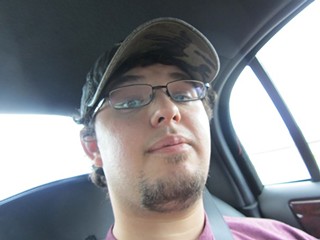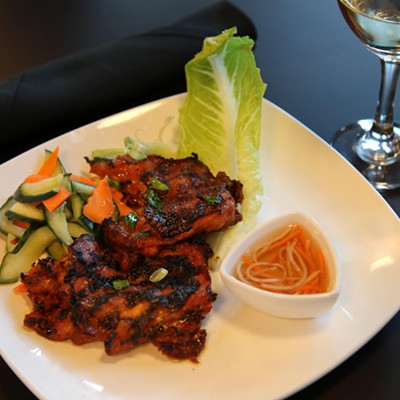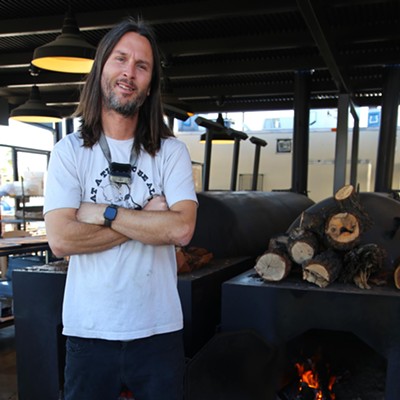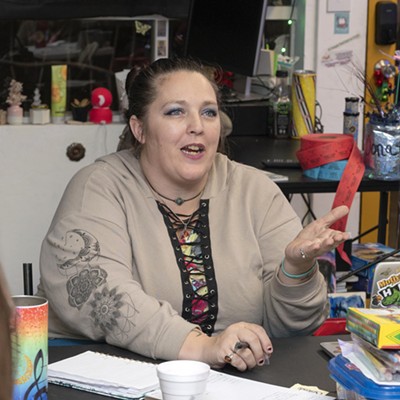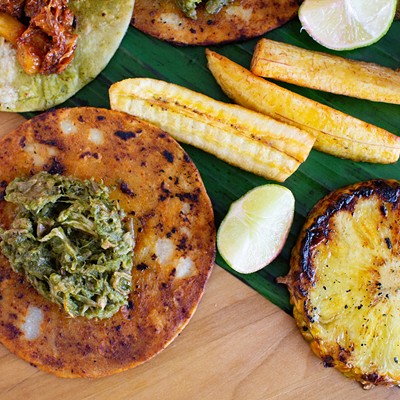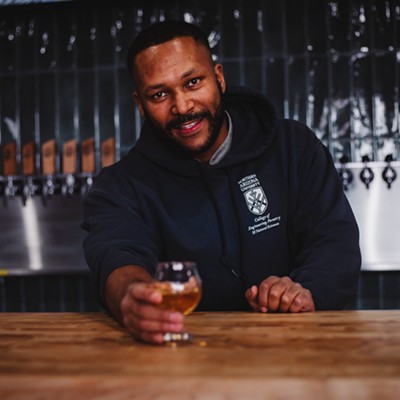First, there was Folgers and its diner-coffee brethren: ubiquitous, simple and bottomless.
Then came Starbucks, spreading espresso and Italian styling far and wide.
Now there's the rise of American artisanal coffee—also known as the "third wave" movement, which has taken the concept of specialty coffee and run with it.
Tucson has several standout artisan coffee houses, with more on the rise. First on the scene was Caffe Luce, whose popularity has led to multiple locations. Cartel Coffee Lab began as Avenue Coffee before buying into and becoming part of the growing brand out of Phoenix. Within the last year, downtown's revitalization has brought us Sparkroot, the only place between in Arizona to find the renowned beans of Blue Bottle Coffee.
Caffe Luce owner Michael Foster had to be persuaded to move to Tucson.
It was an ex-business partner who finally got him down here—but only after convincing him that the market was wide open for the gourmet coffee Foster had made his career since the mid-1990s.
An original partner in Seattle's Caffé Vita, Foster perfected his roasting skills in America's coffee capital. He continues to do so today at Luce's original Park Avenue location, as well as a newer shop at River Road and Campbell Avenue.
Foster's passion for his craft is contagious. He believes that quality roasting and blending is the most-important part of the process. He's unafraid to mass-brew beans at his Park location, which is a shock to those who have grown used to the "pour-over" method, which takes up more than five minutes to make a single cup.
The expedience of mass brewing is necessary thanks to the volume of coffee his shop sells—more than 25 gallons a day while the University of Arizona is in session.
Foster takes pride in being a "full-spectrum roaster." His shop roasts its beans as needed (dark, light or in between) to bring out their flavors, and eschews the trend of "blonde roasts" at most artisan coffee shops.
Those blonde roasts, Foster said, are cost-savers for businesses more concerned with the volume of beans lost in dark-roasting.
As a one-stop business that both roasts and brews its beans, Luce can offer a high-quality product at the lowest possible prices, Foster said.
"We will never sacrifice our level of coffee simply for the sake of business," he said. "If you're serving a great product, you're going to make it."
Avenue Coffee opened in 2009, but it didn't stay under that name for long. After a short partnership with Jason Calhoon (formerly of VanGo Coffee) that ended as quickly as it began, Avenue bought into Phoenix's Cartel Coffee Lab in 2009.
Joshua Richards manages Cartel's Tucson location at Campbell Avenue and Water Street, where he runs the front of the house, as well as barista-training.
At Cartel, an education in coffee (for both employees and customers) is just as important as coffee quality. "We believe that, after roasting, coffee can only go as far as the barista is trained," Richards said. "We typically have hires go through a six-session, unpaid internship to learn about the company and specialty coffee," he said.
After that, new baristas can expect to be bar-backs for one to three months, learning the process for pour-overs and iced drinks.
The education doesn't stop with the baristas. "If we can get people on board with what we're doing and the way we think about coffee, it won't seem pretentious to them," Richards said.
"Coffee's just so complex and so deep—there are more chemical compounds in there than in wine," he said. "We just want to make customers a beverage that will blow their minds, essentially."
Sparkroot is the brainchild of Xoom Juice owner Ari Shapiro, and it's his second major investment in the redevelopment of downtown Tucson.
Originally from New York and most recently from San Francisco, Shapiro is attracted to lively, creative urban centers with an open feel. He said he wanted to give Tucson a space that reflected that feel, "where people could gather and be creative."
He decided that giving Tucson a "bean they hadn't seen before" would be a tent pole for his concept. Initially, he was in talks with roasters such as Cartel (prior to the merger with Avenue) and Intelligentsia.
But a chance call changed that.
"At the last minute, I remembered Blue Bottle, out of San Francisco, and made contact with their wholesaler," he said. "After an hour-long conversation, we decided we liked what we heard from each other, and decided to work together."
As a Blue Bottle retailer, Sparkroot has nothing to do with the roasting process, which is just fine with Shapiro, because it is one less thing for him to perfect within his shop. His obsession with detail, refined through his previous businesses, shines through. Shapiro said that Sparkroot "has the strongest elements of a coffee shop, bar and restaurant."
Sparkroot's staffers, many of them hired months before the shop opened, were chosen because of their drive and desire to get things just right while maintaining a friendly atmosphere, free of stuffiness, Shapiro said.
"What we're really good at is bringing together this high level of quality in an easy-going way," Shapiro said. "That's what makes a place feel really welcoming."

